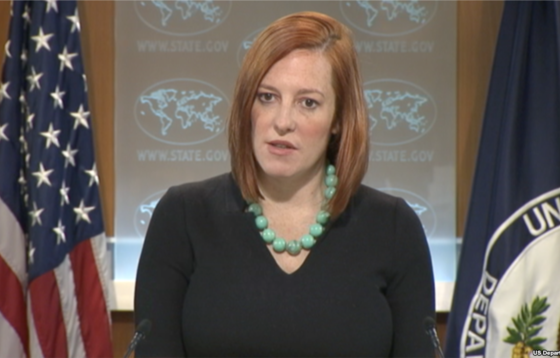MSNBC’s Jen Psaki admitted Sunday that the Democratic Party appears to be “in the wilderness” with no “clear leader,” following Vice President Kamala Harris’ loss to President-elect Donald Trump.
Democrats have struggled to understand how Harris lost both the Electoral College and the popular vote to Trump on November 5, with some warning that the loss within key Democratic voting blocs could hurt the party in the next presidential race. On “Meet the Press,” Psaki said viewers shouldn’t “focus on one visual moment” from the meeting between Trump and President Joe Biden, where Biden appeared cheerful, before adding that some Democrats have an opportunity to step up and lead the party as it seems directionless.
“Look, I think Democrats are in the wilderness. As you just said before, there is no clear leader of the party. Joe Biden is going to be out of office shortly. Kamala Harris just lost the election. There are a lot of governors and other people who might emerge,” Psaki said. “Maybe people we don’t know about yet, but there is no clear leader of the party right now. That to me is an opportunity because people have to decide. Nobody’s given it, right? You seize the mantle or you don’t.”
WATCH:
“Are you going to be the person who’s the right person to stand up against Trump? Are you going to be the person who brings the country together? Are you going to be the person who talks about the economy in ways that people understand? There are lots of ways to do it. I don’t know who’s going to emerge, but that’s the moment we’re in right now,” Psaki added.
Data from post-election exit polls shows that Trump made significant strides among voting blocs with which Republicans have long struggled, such as Hispanic and Black men. The former president not only gained 14 points among Hispanics nationally but also saw a 7-point increase with voters aged 18 to 29, according to Reuters.
While some Democrats have questioned how millions of Americans “didn’t buy” Harris’ pitch to the nation, others have argued that the party needs to stop “underestimating” the former president and start understanding how voters are actually perceiving the systems around them.
Featured Image Credit: United States Department of State












